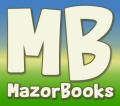|
By Daniel Hadar
The Torah recognizes that there are situations where it may be necessary to terminate a marriage. Until a mere few decades ago Jewish divorce was a rare occurrence. The stigma attached to it was very strong and only as a last resort, when everything humanly possible to save the marriage had failed, was this option exercised. In the present times, the divorce among Jews has skyrocketed and even among Torah Jews the frequency of it is shocking and has reached epidemic proportions. The reasons for this phenomenon has been discussed by many Rabanim but there is an aspect of the consequences of divorce that is not sufficiently emphasized. Based on the Pasuk in Malachi (2:13) the Gemara (Gittin 90b, Sanhedrin 22a) says that when someone divorces his first wife, even the Mizbeach (Altar) sheds tears on his account. The Meforshim discuss a basic question: "Why is the Mizbeach in particular affected by a Get that it shed tearS (so to speak) because of it? A homiletic answer to this can be that the Mizbeach is used to seeing all sorts of Korbanot large and small, on a daily basis. But the heart rendering human "Korbanot" brought about by a Get is too much for even the Mizbaech to bear. This brings it to "shed tears". When a marriage ends with a Get, it is not merely a tragedy for the husband and wife. A Jewish family is torn apart, with the main victims being the children, especially the younger ones. They are left without a father or a mother and frequently without both. They often become pawns in a bitter tug-of-war between their parents, who each try to gain their affection by denigrating their former spouse. Their children's physical and spiritual health suffer and deep emotional scars are inflicted that frequently remain for a lifetime... The Tzarot of a Get does not end when THE twelve-line document is delivered to the wife's possession. Often it is only one part of a protracted venomous struggle over custody of the children, visitation rights, division of the financial assets etc. These issues usually lead to numerous violations of interpersonal Mitzvot like Lashon Hara, Rechilut, Sheker(falsehood), Motzei Shem Rah(Character defamation) and other very serious sins. The legal and financial issues often end up in secular courts. What a Chillul Hashem it is to display such bitter acrimony before non-Jews who are left to wonder if there is, indeed, a G-d that these Orthodox Jews supposedly fear. The Rama (Orach Chayim 656:1) rules that a person is required to relinquish all his money to avoid violating a Torah prohibition. THE Chafetz Chayim (Hilchot Lashon Hara 1:6) writes that if an employer threatens his employee with the loss of his job if he doesn't speak Lashon Hara about someone else, the employee is required to forfeit his livelihood to avoid violating this prohibition. How can an observant Jew recite the Shema twice daily and say (Devarim 6:5): "You shall love Hashem, you G-d, with all your heart, with all your soul and with all your money, go and repeatedly violate countless Torah prohibitions in court struggles over money and property? This is a tragedy beyond words which, in the heat of battle, cannot be addressed. By seriously contemplating the Korbanot caused by divorce, which brings even the Mizbeach to tears, a person will do everything possible to avoid coming to such a tragic situation.(Sefer Chinuch HaBanim B'Zmanainu, R' Avraham Pam ztl)
The Smag writes that Mashiach will only come when we find Chen in
the eyes of the nations of the world. We are Hashem's chosen nation
and must act accordingly. When a person is tested, is when his true
colors come out. No matter what difficult time we are going through
whether it be a divorce, the break up of a business partnership or
any other trying experience we must keep in mind that we are
Hashem's children and must act like it. Even if the partnership did
not work out, we still treat people with respect and dignity,
because we are a G-dly people. If we keep this idea in our minds
then there will be less Korbanot, and less of a Chillul Hashem. May
all that are single find their Zivugim and have Shalom Bayit, and
may those that are married merit Shalom Bayit and may we all
together act as the children of Hashem are supposed to, and in this
merit we will see the coming of Mashiach Tzidkainu speedily in our
days AMEN!
|
|
||||||||||||
Mazor Guides: Wealth of Information and Resources
Other Mazornet, Inc. Websites Copyright 1998-2024 MazorNet, Inc.
-
Mazor Guide - The Ultimate Guide to Living Jewish -
-
Guide to Jewish Holidays -
-
Bar Mitzvah and Bat Mitzvah Guide -
-
Guide to a Jewish Wedding -
- Guide to Jewish
Celebrations -
- Guide to Kosher Living -
- Infertility and
Judaism: A Guide -
- The Get (Gett)
- the Jewish Divorce: A Guide -
- Zei Gezunt: Jewish Perspective on Health -
- Jewish Genetic Diseases -
- Death
and Mourning in Judaism -
http://www.MazorGuide.com |
http://www.MazorBooks.com







